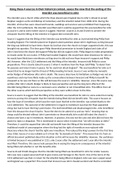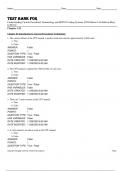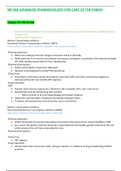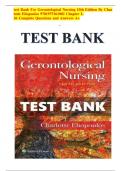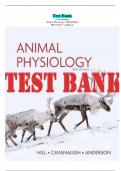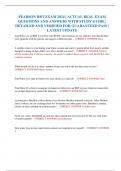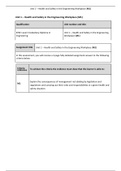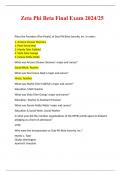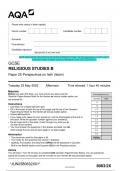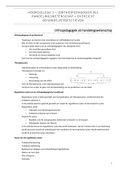Essay
"Using these 4 sources in their historical context, assess the view that the ending of the Interdict was beneficial to John" Model Essay
- Module
- Unit 1 (Y103)
- Institution
- OCR
A model, 30 mark A grade essay analysing historical sources and assessing whether King John benefited from the ending of interdict
[Show more]
